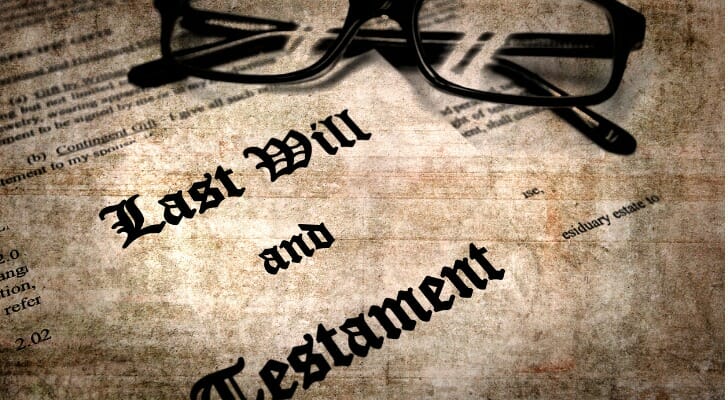
What is the Difference Between a Living Will and a Healthcare Power of Attorney?
Most people are surprised to learn that a living will is a distinct and separate document from a healthcare power of attorney. But there are important differences between the two and one cannot act as a substitute for the other when it comes to your estate plan. Both documents are necessary for complete medical protection in the case you suffer a serious medical condition that leaves you...

What is an S Corporation?
An S corporation is a specific type of business entity. It is sometimes referred to as an “S-Corp” or an “S Subchapter.” The entity is usually associated with smaller businesses (typically those having less than 100 shareholders). The main feature of an S corporation is that it can pass income directly to shareholders without having to pay federal corporate taxes.
What are the Requirements for...

FAQs on Executors in Estate Planning Cases
An Executor, or currently referred to as a Personal Representative, is a person who handles someone else’s estate if that party dies with a Will. Naming an executor/personal representative when making your estate plan is a very important decision that should never be overlooked. To help guide your decision, let’s consider some of the most frequently asked questions on the topic.
What Exactly...

Frequently Asked Questions on Washington’s Silenced No More Act
There is a new law in Washington that affects the use of nondisclosure and nondisparagement provisions in employment contracts. The law is known as the “Silenced No More Act” and it was signed into effect by Washington Governor Jay Inslee on March 24, 2022. Let us take a look at some of the most common asked questions regarding the new law and its mandates. It is critical for Washington...

What is an Inter Vivos Trust and Do I Need One?
Estate planning is roughly defined as the process by which a person arranges the transfer of his/her assets prior to death. Many people envision the process as a complicated one, largely since it often involves a host of different documents – many of which the law labels with confusing names. The “inter vivos trust” is one great example. While the document may sound complicated, it’s actually...

Tax Evasion 101
With April 15th just around the corner, we’re officially knee deep in tax season. As people and businesses crunch numbers, some may question whether or not they really have to face and comply with certain tax obligations. The answer is yes, or else you just might find yourself subject to federal criminal charges involving tax evasion.
How Does Federal Law Define “Tax Evasion”?
Per federal...

Estate Planning Basics: Will vs. Trust
The reality is that estate planning involves several complicated phrases and documents, like “executor” and “power of attorney.” Perhaps two of the most asked about documents are the estate planning tools of the Will and Trust. While there are definite distinctions between the two, it’s likely that your estate plan should include both and a skilled estate planning lawyer can help you make the...

When Restructuring Your Business Makes Sense
“Restructuring” refers to when a company or business makes significant changes to its financial or operational structure. Many people assume that companies often restructure because of some misfortune (like bankruptcy) or a type of material disadvantage in the market. But the reality is that there are numerous reasons for making changes to a company’s structure, and restructuring might just be...

5 Ways a Business Can Avoid a Tax Audit
A tax audit is an examination of your tax return by the IRS to verify that your income and deductions are accurate. In some cases, an audit will result in you owing additional tax money. In other cases involving fraud and unlawful conduct, audits can lead to civil penalties or criminal charges. While there is no sure-fire way to avoid an audit altogether, there are several measures you can...

Easy Steps to Tidy Up Your Estate Plan
Life constantly changes. One result is that there’s a good chance your personal affairs have probably changed since you first created your estate plan. No problem whatsoever. All you need to do is take a few steps to tidy matters up. Taking the time to do so will only benefit your family and loved ones.
Ensure that All Your Estate Plan Documents are Current
A thorough estate plan will usually...
